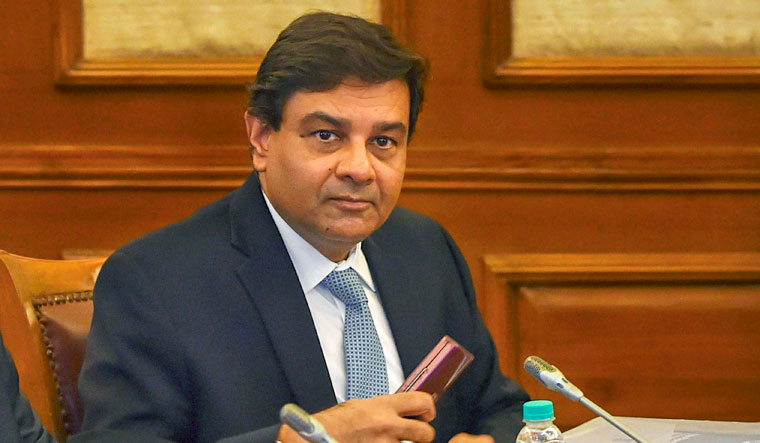
Insolvency law caused rift between Centre, RBI: Urjit Patel
The Union government led by Prime Minister Narendra Modi and the Reserve Bank of India were in a disagreement over the moves to dilute the new bankruptcy law, writes Urjit Patel, the former governor of the central bank, in his book released on Friday.

The Union government led by Prime Minister Narendra Modi and the Reserve Bank of India were in a disagreement over the moves to dilute the new bankruptcy law, writes Urjit Patel, the former governor of the central bank, in his book released on Friday (July 24).
According to a Bloomberg report, the rift occurred after the central bank issued a circular in February, 2018, which raised chances of insolvency proceedings against defaulters. Patel, in his book, writes the government seemingly lost enthusiasm for the legislation in the middle of the year he left RBI.
“Instead of buttressing and future-proofing the gains thus far, an atmosphere to go easy on the pedal ensued,” the report quotes his book as saying. “Until then, for the most part, the finance minister and I were on the same page, with frequent conversations on enhancing the landmark legislation’s operational efficiency.”
Patel served as the 24th governor of RBI from September 2016 to December 2018.
Further, he writes that the fear of the 3Cs — CBI, CAG, CVC — seems either a red herring or an exaggeration behind which the bankers take shelter to not do the right thing – that of protecting depositors’ interest. He says that the government is responsible for ensuring adequate capital for banks that are under its ambit on a durable or sustainable basis.
Patel makes these remarks in his book Overdraft: Saving the Indian Saver, in which he talks of banking crisis and tells how he worked out the ‘9R’ strategy when the problem of unsustainable bad debts or NPAs in the Indian banking sector was at its peak.
He says he does not wish to write about passing matters in his book but “address correctly” some issues of economic outlook and policy that are important for the nation’s destiny.
Related news: Current insolvency law overlooks certain labour, federal rights
“The dominant owner pre-2014 didn’t question risk controls in GBs (government banks) even as it received significant dividends. A number of GBs did not have senior management in place, and governance suffered. This is a perennial shortcoming on account of bureaucratic inertia and political meddling,” Patel says in his book.
Same is the case for these banks’ board of directors, he says, adding it is common knowledge that this has traditionally been a placeholder for sinecure to political supporters.
“Key committees of the board, like the audit committee, have suffered from both inadequate membership, as seats go unfilled, as well as paucity of talent/domain knowledge to carry out fiduciary responsibilities to the level that is required and expected,” he writes.
He says that government banks have “argued incessantly over the decades – with mindspace capture of authorities and others – that an important reason for not calling out problem accounts in a timely manner as non-performing, hence legitimising ever-greening, is that the government’s vigilance agencies (the 3Cs – the CBI, the CAG and the CVC) would raise questions or initiate investigations and invite a form of retribution regarding why and how were these loans made.”
Related news: RBI raps lending apps, NBFCs for harassing customers
While, Patel feels that the explanation may have merit, he also finds it puzzling at two levels.
“GBs aren’t shy of designating personal loans and advances to small borrowers as NPAs, and liquidating their security without fuss; and shouldn’t GBs be more concerned about queries from the 3Cs when the loan size to struggling corporates is actually getting larger at a time when the latter’s debt-servicing capability is obviously declining?”
How can more financing for essentially a restructured account be considered less serious than flagging an account as an NPA early in the life cycle of a loan, he asks.
“It would seem that the fear of the 3Cs is either a red herring or, at the least, an exaggeration behind which bankers take shelter to not do the right thing – that of protecting depositors’ interest,” he says in the book, published by HarperCollins India.
(With inputs from agencies)


